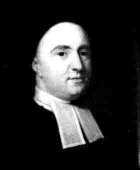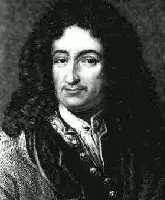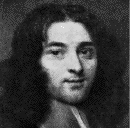
Modern Philosophy:
The Enlightenment
Dr. C. George Boeree

Modern Philosophy:
The Enlightenment
Dr. C. George Boeree
The 1600's were among the most exciting times for philosophy since ancient Athens. Although the power of religion was still immense, we begin to see pockets of tolerance in different places and at different times, where a great mind could really fly. England was fairly tolerant, if only because of its diversity. Holland was the best place to be. A small country fighting off attacks, military and economic, from every side, needed all the support it could get, whatever your religion, denomination, or even heresy.
The central issues were the same as those of the ancient Greeks: What is the world made of? How do we know anything for certain? What is the difference between good and evil? But they are now informed with centuries of science, literature, history, multicultural experiences, and, of course, written philosophy. Perhaps we have to admit that the modern philosophers are only elaborating on the ancient Greeks, but what elaboration! Was Rembrandt only doodling?
I will approach this era philosopher-by-philosopher, showing, I hope, the "battles" between materialism (e.g. Hobbes) and idealism (Berkeley), between empiricism (Locke) and rationalism (Spinoza), and between faith (Leibniz) and atheism (Bayle).
Thomas Hobbes (1588 - 1678)
Thomas Hobbes was born on April 5, 1588. His father, an
Anglican
clergyman, left the family when Thomas was still young.
Fortunately,
his older brother did well for himself, and sent Thomas to
Oxford.
He served for a while as secretary to Francis Bacon. Travelling around
Europe, he paid a visit to Galileo. He spent eleven years in
Paris,
and was tutor there to the exiled Prince of Wales (who would become
Charles
II).
In 1651, he wrote The Leviathan, a book presumably concerning politics, but covering much else besides. The book is named for a sea monster in the book of Job in the Bible. It was meant to be a symbol of God’s power, but Hobbes used it to symbolize the state.
Hobbes thought of himself as a scientist, but he was really more of a rationalist: Truth can be had if we only make sure to define our terms well and reason logically! But his conclusions were empiricistic: Nothing is in the mind that isn’t first in the senses. This in turn led him to a pure materialism: All qualities are really matter in motion. Things “of the mind,” such as memories and imagination, are just sense images decaying, and all in the form of matter in motion in the brain.
Will to Hobbes is just the last desire you have before you take action on it -- hence free will is an absurdity. All motivation is selfish, and ultimately tied to survival. The basic negative emotion is fear, the basic positive emotion is desire for power. Good and bad are purely subjective matters. And so he goes beyond Descartes: Not only are animals just machines, so are we. B. F. Skinner was an admirer of Hobbes.
Because good and bad are subjective and we are selfishly motivated, we will do whatever we need to do to satisfy our needs. Society must therefore control the individual if we are to have any peace at all! So society develops systems of rewards and punishments, social approval and social censure. Leviathan -- the commonwealth -- is that necessary evil.
Presaging Rousseau, he suggested we submit to society in order to avoid a purely primitive life, which he characterized as “nasty, brutish, and short.” But, in contrast to Rousseau, he felt that society is an arrangement made between ruler and ruled, not among equals. Ultimately, the king must have absolute power for civilization to survive. Democracy, he says, is just rule by orator-demagogues who easily manipulate the mob.
Religion, too, is a device for keeping the peace. It is nothing more than a fear of invisible powers that the mob has accepted as legitimate. Superstition is the same thing, just not accepted as legitimate! I should note that Hobbes was not an atheist: He was a deist, meaning that he believed in a creator, an intelligent prime mover who started all this, but one who does not need to intervene once his mechanical laws of nature take effect.
When he returned to England, he found himself confronted with many critics. Fortunately for Hobbes, his old pupil, now King Charles II, took him in and set him up with a nice pension. He died December 4, 1679, at the age of 91.
Benedictus Spinoza (1632-1677)
Baruch Spinoza was born in Amsterdam on November 24, 1632. His
parents were Portuguese Jews who had escaped from the persecution they
suffered in their homeland. Sadly, his mother died when Baruch
was
only six.
He received a religious education, but his father instructed him in various secular subjects in the hopes that Baruch would take on a business career. Baruch became fluent in many languages, and had a particular love for math, especially geometry. His father died in 1654, when Baruch was 22.
Discussing his beliefs with his friends, he admitted to doubting many of their religious traditional beliefs, such as life after death. They reported him to the synagogue soon after. After trying to persuade him to keep his opinions to himself, the rabbis excommunicated him in 1656. At that time, excommunication (Jewish or Christian) including the practice of shunning -- i.e. no one in the community was to speak or correspond with him in any fashion.
But Baruch -- now called Benedictus (“blessed,” the Latin for the Hebrew baruch) -- had many friends outside the Jewish community, and they would protect him all his life. Nevertheless, he was forced to move to Rijnsburg, a small town, in 1660 after a death threat, and again in 1663 to Voorburg near the Hague, and finally to the Hague itself.
He supported himself throughout as a lens-maker. At this time, that occupation included not only the making of glasses, but of lenses for telescopes and microscopes -- the latest thing in technology! He conducted a variety of experiments as well. Unfortunately, the constant exposure to glass dust was to take a toll on Benedictus’ lungs.
He published, anonymously, the Treatise on Theology and Politics in 1670. This was a devastating critique of Biblical literalism, and was immediately condemned by the religious community of Holland.
His most important work, Ethics, was begun all the way back in 1662. He tried to publish it in 1675, but was frightened off by rumors that his life would be in jeopardy if he did so. He died of tuberculosis two years later, February 20, 1677, at the age of 45. His friends published Ethics and other unpublished works in his honor in that same year.
The full title of the book was Ethics, Demonstrated in the Fashion of Geometry, because he laid out his arguments in the same way that a mathematician might lay out a geometric proof. This is certainly a rigorous way of writing philosophy, but it does make it hard to read. (Dagobert Runes edited The Ethics of Spinoza in 1957 so that it would be more readable for modern students.)
According to Spinoza, Substance (that which underlies all reality, also known as Existence or Being) has two attributes (sides or aspects). If we look at reality from one angle, through the senses, we see it as matter. But if we look at it within ourselves, we see it as thought. He suggested that there were an infinite number of aspects, but those two are the only ones evident to human beings.
So, the body (or brain) and the mind (or soul) are one and the same thing seen from two different perspectives. Where there is material activity, there is thought. Where there is thought, there is material activity. Not all thought is available to what I perceive as myself: Much of it remains unconscious. But it goes on nonetheless.
This “double-aspectism” sounds great, but it does bring us to panpsychism. Panpsychism is the idea that every material thing has a mental side to it (and vice versa). People have minds, animals have minds, plants have minds, even rocks and houses have minds. The earth itself has a mind. Of course, as we move away from people, those minds are increasingly unconscious and lacking in a sense of self, but still....
It also leads to Spinoza’s most famous concept, the one he actually based the rest of his theory upon: God and Nature are one and the same, and identical with all of Existence, mental and physical. God is the mind of the universe; the universe is the body of God. This is often called pantheism -- God is everywhere and in everything -- but in his day, it was called atheism.
Like Hobbes, Spinoza is a mechanist. He believes only in determinism, not free will. For us as humans, this determinism comes in the form of desires, which derive from our need to survive. All things, he says, have the motive of self-preservation, all things are “selfish.”
He says that we strive to increase our power, that is, our capacity to preserve ourselves. Then he identifies this power with virtue! So the good is defined as what is useful to us, and the bad as what is damaging to us. Good advances our well-being, bad decreases our well-being. Good we perceive as pleasure, bad is perceived as pain.
But, we have many desires. Usually, one outweighs the others and we do what we desire most. But often they conflict. This conflict itself decreases our well-being and so is painful. What do we do to make our lives less painful then?
Society helps to some extent. By providing rewards and punishments, praise and blame, it adds new items to our list of desires that may outweigh certain desires and support others. Ultimately, society instills a conscience in most of us. Spinoza saw conscience as learned, not innate.
Ultimately, we must rely on ourselves: First, Spinoza says, we have to gain some control over our desires. When they are out of our control, when they instead control us, he calls them passions. They are out of our control because they operate unconsciously and so are not available to reason. By getting a “clear idea” of them, we turn them into simple emotions, which are amenable to reason. Freud would say, three centuries later, that we must “make the unconscious conscious!”
One way to turn a passion into an emotion, incidentally, is to trace its roots. If you can see where it came from, its operations become clear -- conscious -- and you can better deal with it.
Another way to deal with passions is to see the necessity of things. Nature is what it is, God wills what he wills, and no one can change that. Surrender to the inevitable, and you will be much more peaceful, at least. A wise person, for example, sees that getting angry at unpleasant people isn’t going to change them. In fact, it only hurts you. Being kind to others, on the other hand, is usually rewarded, and it takes much less out of you. Along with Buddha and Jesus, Spinoza said that love can conquer hate.
He also said that wise people “desire nothing for themselves which they do not also desire for the rest of mankind” (Ethics, iv, 48). This presages Kant’s categorical imperative by a century.
But only an emotion can overcome another emotion. Therefore, reason must itself become an emotion -- a powerful one -- in order that it may outweigh others. He calls this powerful emotion “the intellectual love of God,” which of course means love of nature as well. It also includes the acceptance of God’s will -- or natural law. Knowledge of God/Nature is the ultimate virtue, and the ultimate pleasure!
Dismissed by the English as an atheist and by the French as too religious, Spinoza would have great influence on upcoming German philosophers, including Goethe, Hegel, Schopenhauer, and Nietzsche. And it is in Germany where psychology was to flourish.
John Locke (1632-1704)
 John
Locke is sometimes called “the father of the enlightenment.” He
was
born August 29, 1632, the same year as Spinoza. His father was an
attorney and a Puritan, who taught young John the value of
representation
and religious freedom. John’s father died of tuberculosis when
John
was 29, leaving him with a small inheritance.
John
Locke is sometimes called “the father of the enlightenment.” He
was
born August 29, 1632, the same year as Spinoza. His father was an
attorney and a Puritan, who taught young John the value of
representation
and religious freedom. John’s father died of tuberculosis when
John
was 29, leaving him with a small inheritance.
John went to Oxford, received his Masters degree, and taught there. He later studied medicine and became the personal physician to the Earl of Shaftesbury (grandfather to the philosopher of the same title).
Beginning in 1675, Locke studied in France. When he returned, he found the political climate under James II less than congenial, and so moved to Holland. It was there that he wrote his great psychological work, Essay concerning Human Understanding.
In 1689, he returned to England after William and Mary took the throne from James II. There he published his works -- the Essay, his two Treatises on Government, and two letters concerning the need for religious tolerance. In 1691, he retired to a friend’s mansion, and died in 1704 at the age of 72.
His Treatises alone would assure him a place in history near the top. In them, he outlined the basics of representative government, including natural rights, consent of the governed, the protection of property, religious tolerance, separation of church and state, and the checks and balances between executive and legislative branches. His ideas would become the foundation of the Declaration of Independence, the American Constitution, especially the Bill of Rights, and the French Declaration of the Rights of Man. Not bad.
Unlike Hobbes, Locke sees people as having a positive nature, one that contains instincts for social good and the ability to reason. Since our nature is positive, we should allow ourselves and others the freedom to develop that nature. For this reason, we must each surrender some degree of freedom in order that others may likewise be free to develop their potentials.
Laws are created, not to keep us from destroying each other, but to allow us to express our positive, rational natures. And so a government is legitimate only if its laws promote that which is our nature -- to be free and rational. And it can do this only if is based on the consent of the governed! If Hobbes reminds you of Skinner, Locke should remind you of Carl Rogers.
His Essay concerning Human Understanding attacked another popular idea of his time: Many scholars believed that the idea of God and the ideas of good and evil are planted in our minds at birth, perhaps by God himself. It was said that these ideas were innate. But when Locke looked at the variety of beliefs, non-beliefs, and moralities, he concluded that these things could not possibly be innate.
He admits, of course, that there are reflexes and instincts and the like, but these are just physiological sequences of movement, not ideas! There are some ideas, learned from experience, that are learned so early and reinforced so consistently, that they have the appearance of being innate. But that’s only an appearance!
In the course of arguing that there are no innate ideas, he also sets the stage for two future arguments, taken up by Berkeley and Hume. First, he notices that if we try to find matter, we see nothing but qualities that we attribute to matter -- but never matter itself. The idea of matter is not empirical! This would be elaborated by Berkeley.
Second, he notices that if we try to find mind, all we see are the qualities we attribute to mind. Never do we see, empirically, a mind at all! This would be elaborated by Hume.
Locke doesn’t make the leaps that Berkeley and Hume will, however. He is too practical for that. He says we are no doubt correct in believing in matter and mind. Life makes little sense without them. And yet, they are not empirically verifiable. He is sometimes called a metaphysical agnostic: He believes that there is mind and matter (and that they do interact, somehow), but no one can prove their existence.
Locke’s ideas were adopted enthusiastically by French philosophers as well as English (and American) thinkers. They would translate him into a revolutionary, and his philosophy of human nature into Sensationism and Mechanism.
George Berkeley (1685-1753)
 George
Berkeley was born March 12, 1685 at Dysert Castle in Ireland. He
went to Trinity College in Dublin, where, among other things, he
studied
John Locke.
George
Berkeley was born March 12, 1685 at Dysert Castle in Ireland. He
went to Trinity College in Dublin, where, among other things, he
studied
John Locke.
In 1709, he wrote An Essay Towards a New Theory of Vision. He asked, if a man, born blind, recovered his sight, what would he see? Berkeley reasoned he would see a meaningless array of qualities, which he would interpret as in his mind, and certainly not extended further than his eyes. Only repeated connection between the sights he sees and those same objects touched would lead him to learn shapes, distances, and so on. Later operations actually restoring people’s sight supported his theory.
Space (extension), therefore, is a mental construct, a matter of coordinating the relationships between what we see and what we experience through touch. We will see this idea of space as a mental thing again in Kant’s theory.
In 1710, he wrote The Principles of Human Knowledge. If, as Locke said, all knowledge comes through the senses, then we can know nothing that does not come through the senses. Extension in space, the shapes of things, their resistance to touch, their colors, tastes, smells,... all these do in fact come through the senses. But when does matter come through the senses? When do you see matter, or feel it, or taste it? All you ever experience through the senses are qualities, never a substance!
Matter is therefore a theory without evidence. Since the atheism of Berkeley’s day relied a great deal on materialism, he felt he had laid a knock-out punch!
Of course, it’s not just atheists who believe in matter -- nearly everyone does. It’s “common sense.” Dr. Johnson thought he gave the perfect rebuttal to Berkeley’s idea when he kicked a rock as hard as he could: The pain that rock caused him could hardly be denied! But Berkeley would (and did) note that all anyone could know about the rock was its shape, location, color, i.e. information of the senses, including the sense of pain if you are stupid enough to kick it.
Esse est percipi, Berkeley said: To be is to be perceived.
So what happens to things when we are not looking at them, touching them, or kicking them? Do they vanish every time we turn around? Berkeley said of course not! Things -- as collections of qualities -- always remain, but in God’s mind, which encompasses everything.
When a tree falls in the forest, and there’s no one to hear it, does it make a sound? Berkeley would say it does, because God hears it. This is perhaps the purest, and most eloquent, version of idealism ever. Only the Mahayana (northern) Buddhists have a similar idea in their “mind-only” philosophy. In their case, they refer not to God but to Buddha-mind.
Berkeley went on to spend some time in Rhode Island, waiting for a grant to start up a college in Bermuda, which never arrived. Berkeley in California was named for him. He became (Anglican) Bishop of Cloyne in 1734, and died at Oxford in 1753 at the age of 68.
Gottfried Wilhelm Leibniz (1646-1716)
Leibniz was born June 21, 1646. His father was a professor of
philosophy at the University of Leipzig. Little Gottfried was a
boy
genius (of course) and received his doctorate at the age of 20.
He
spent some time gallivanting around Europe, tasting just about every
philosophy
the continent had to offer.
In 1672, he went to France as a diplomat. There he would begin to invent calculus, as well as a calculator that could multiply and divide. In 1676, he visited Spinoza in Holland (where he read the manuscript for Ethics), and then went on to Hanover to serve the prince there. In 1700, he founded the Berlin Academy.
His major life’s project was to reconcile Catholicism and Protestantism. He failed, obviously. It will take a lot more than genius to reconcile those two!
His major work, as far as psychology is concerned, is New Essays on Human Understanding, a refutation of Locke written in 1703, but not published until 1765.
His basic point was that the mind is not a passive “tabula rasa” (clean slate or piece of paper) upon which experience writes, as Locke and Aristotle suggested. The mind is a complex thing that works on and transforms experience. “Nothing is in the mind that has not been in the senses,” he said, paraphrasing Locke, “except the mind itself.” This would inspire Kant, and many psychologists in more recent times.
Leibniz also suggested that while we are alive, the mind is never entirely at rest, even in deep sleep. In fact, it is often functioning even when we are not conscious of it doing so. It was this conception of the unconscious that would most influence Schopenhauer and, later, Freud.
Leibniz had a very unusual metaphysics. He started with the
same sort of skeptical approach as Descartes. But he ended with
an idealistic metaphysics called monadology
that outdoes even Berkeley's metaphysics. Monads are souls. Each soul contains
within it the "perception" of the entire universe. It's not that
there is an entire universe outside our souls which we all perceive as
an object -- souls are all there is!
We often experience ourselves as interacting with others -- "monad a
monad," you might say. But Leibniz makes it clear that we are only apparently interacting, each within
our own internal universe. Monads, he tells us, are "window-less."
We consciously perceive
only a small piece of this internal universe -- our "point-of-view," we
could say. I am not aware, however, of what the insides of my
stomach look like, or what thoughts you are having at this moment, or
what's happening on some planet circling Alpha Centauri. All that
and more is "in" me, but is only perceived unconsciously.
Although each soul has its own "point-of-view," all souls contain
the same total perception of the universe. This is what he called
harmony. But some souls
have a clearer, more complete, more conscious,
view of the universe within than others do. Only one soul is
totally conscious, or, if you like, contains all
"points-of-view." That soul is God.
Leibniz became increasingly isolated and impoverished over time, being without a political sponsor. He died alone in 1716, and his funeral was attended only by his secretary.
Pierre Bayle (1647-1706)
 Pierre
Bayle was born November 18, 1647, the son of a Huguenot (Protestant)
minister
in southern France. He was sent to a Jesuit college in order to
get
the best education, and was converted to Catholicism there. When
he returned, he converted back to Protestantism! This made him a
relapsed heretic, a very dangerous thing to be at the time.
Pierre
Bayle was born November 18, 1647, the son of a Huguenot (Protestant)
minister
in southern France. He was sent to a Jesuit college in order to
get
the best education, and was converted to Catholicism there. When
he returned, he converted back to Protestantism! This made him a
relapsed heretic, a very dangerous thing to be at the time.
So his father sent him to Geneva to study, where he discovered Descartes. He taught for a while in France, but then found it necessary to escape to Rotterdam, in Holland, where he eventually became a professor. He suffered from headaches and depression and never married.
In 1682, he anonymously published Diverse Thoughts on the Comet. Referring to a recent comet that had everyone abuzz, he wrote against the various superstitions of his day and the belief in miracles. In the book, he noted that as far as actions and morality are concerned, he could see no difference between Catholics and Protestants, Christians and Jews and Moslems and pagans and even atheists!
In Amsterdam in 1684 he began a magazine called News of the Republic of Letters. He wrote all the articles himself! In the meantime, both his parents and his brother were killed during the persecution of the Huguenots. So he wrote a book on tolerance. But tolerance was not on the Protestant agenda, either, and he lost his professorship. “God preserve us from the Protestant Inquisition!” he wrote.
His major work was The Dictionary, which was really more of an encyclopedia of philosophy, religion, literature, etc. Writing 14 hours a day, he wrote 2600 pages. In this massive work, he “deconstructed” (as we would say nowadays) a great number of Biblical stories, religious beliefs, and philosophical theories, including such tidbits as the doctrine of original sin and the trinity. He even suggested that, if God and Satan actually exist, Satan is winning! He would always add, after making these extreme statements, that of course no good Christian would ever believe such a thing!
After years of condemnation by the religious establishment, he died of tuberculosis on December 28, 1706. But The Dictionary would become immensely popular among intellectuals throughout Europe, and have a great influence on thinkers for more than a century.
As we enter the 1700's, we find religion fighting a losing battle against the forces of reason and science. While average people still went to church, baptized their babies, and prayed for forgiveness, the educated elite turned to deism, pantheism, and even atheism. This included the intellectuals of Catholic France as well as future "founding fathers" in colonial America: Ben Franklin, Thomas Jefferson, James Madison, and even George Washington were deists, and John Adams was a Unitarian. Scientific discovery and invention would steamroller traditional society for the next 300 years. Psychology would attempt to follow, but would lag behind for some time to come!
© Copyright 2000, C. George Boeree